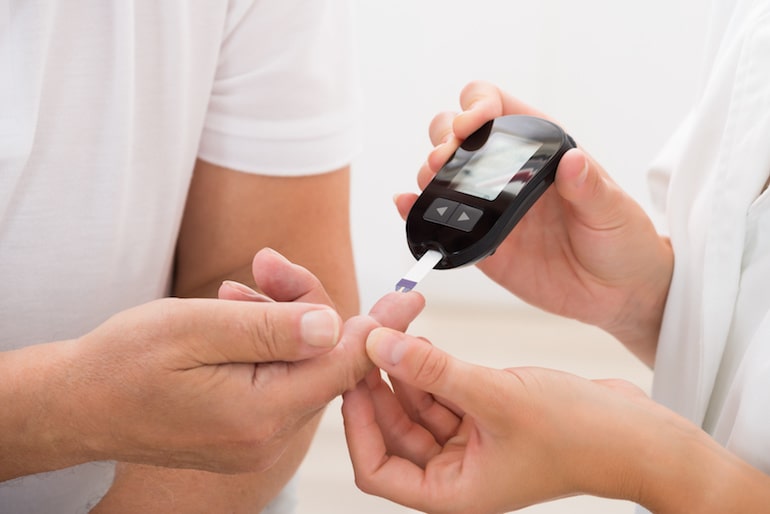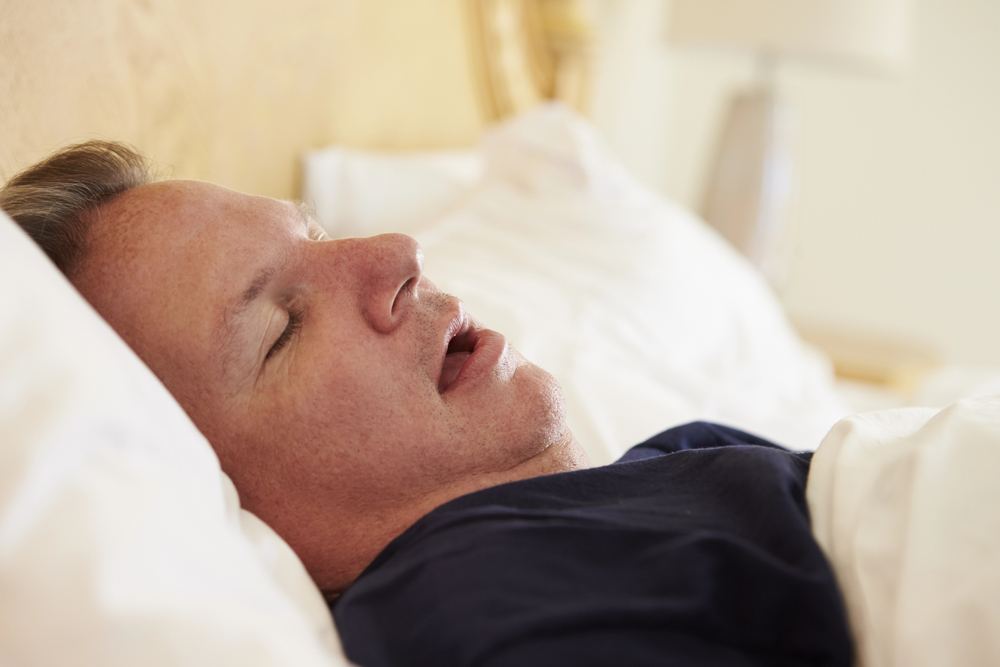Sleep Apnea 101
How Does Sleep Apnea Affect Diabetes?
While sleep apnea and diabetes are separate conditions, sleep apnea may impact glucose levels, which can affect the way the body responds to insulin and blood sugar control and can in turn decrease breathing quality at night, creating a cyclical relationship between diabetes and sleep apnea.
The Influence of Sleep Apnea on Diabetes

Sleep apnea can exacerbate the symptoms and management challenges of diabetes, making it important for individuals with diabetes to be screened for sleep apnea and vice versa. It can affect diabetes in several key ways:
- Insulin Resistance: The disrupted sleep and intermittent oxygen deprivation associated with sleep apnea can lead to increased insulin resistance, making it harder for the body to control blood sugar levels effectively.
- Poor Blood Sugar Control: The stress and fatigue caused by sleep apnea can negatively impact blood sugar levels, leading to more difficulty in managing diabetes.
- Hormonal Imbalances: Sleep apnea can disrupt the balance of hormones that regulate appetite and glucose metabolism, potentially leading to weight gain and worsened diabetic conditions.
- Increased Risk of Complications: The combination of sleep apnea and diabetes can amplify the risk of cardiovascular diseases, a common complication of diabetes, due to the added strain on the heart and blood vessels.
- Impact on Lifestyle Management: The fatigue and tiredness resulting from sleep apnea can make it challenging for individuals to adhere to exercise and diet regimens that are crucial for diabetes management.
If you have diabetes, be sure to ask your doctor to screen you for sleep apnea. The sooner sleep apnea is treated, the less the condition may exacerbate the symptoms of diabetes and affect your overall health and daily life.
What Is Diabetes?

Diabetes is defined by a body’s lack of glucose control and impaired insulin. This means the body can have difficulty metabolizing carbohydrates for energy and leave too much sugar in the blood.
What Are the Symptoms of Diabetes?
Common symptoms include:
- Frequent urination
- Blurry vision
- Rapid weight loss or excessive weight gain
- Increased thirst
- Lightheadedness
- Chronic fatigue
- Pins and needles sensation
- Increased hunger
- Fluid retention
- Dry skin
- Skin infections take longer to heal
- High blood pressure
- Swelling in the hands and feet
The Influence of Diabetes on Sleep Apnea

Diabetes can influence the healthy distribution of body fat, blood pressure, and glucose. Here are several ways in which diabetes can influences sleep and sleep apnea:
- Insulin Resistance: Our cells require glucose for energy. This includes the cells in our muscles that control our breathing, in other words, our respiratory muscles. When the movement of our breathing motions changes, this can cause airway blockages and cause sleep apnea.
- Obesity: With diabetes, there is a higher risk of developing obesity due to blood sugar imbalance. Having too much body weight around the abdomen or neck area can lead to the development of obstructive sleep apnea (OSA) by blocking the flow of air during sleep.
- Hormone Imbalances: Patients with diabetes tend to develop high cortisol stress levels. When there is excess inflammation or sensory “fight or flight” stressors consistently, this can lead to imbalanced levels of estrogen and testosterone. These imbalances can cause excess fluid retention and impact sleep quality.
- Cardiovascular Problems: Cardiovascular problems can be caused due to a rise in blood sugar levels, which then leads to high blood pressure. Chronically raised blood pressure can lead to conditions such as heart disease or sleep apnea as the arteries become damaged. Damaged blood vessels also influence nerve and muscle control and can impact breathing patterns.
- Chronic Inflammation: Diabetes is often characterized by chronic inflammation in the body. To sleep normally, the throat muscles need to be relaxed for adequate airflow. High inflammatory levels in the body can aggravate the natural contraction of the throat muscles and contribute to symptoms of sleep apnea.
- Nerve Control (Neuropathy): High glucose levels seen in diabetes can affect nerve function. A lack of nerve control can affect involuntary muscle movements and block the airway, as seen in sleep apnea.
Understanding and addressing the impact of diabetes on sleep apnea is crucial for overall sleep health. Individuals experiencing symptoms of diabetes and sleep apnea, such as uncontrolled weight gain, nerve pain, excessive inflammation or fatigue, and airway blockages during sleep, should seek evaluation and diagnosis from a healthcare professional who can provide lifestyle change recommendations or other medical management strategies such as an oral appliance.
Do You Have Sleep Apnea?
Contact us for an alternative treatment to CPAP machines.
Contact us
Call us
Location
1700 Eagle Harbor Pkwy, Suite 7
Fleming Island, FL 32003
Hours
Monday 9am- 4pm
Tuesday 9am- 4pm
Wednesday 10am - 5pm
Thursday 9am- 4pm
Friday By Appointment
Saturday Closed
Sunday Closed